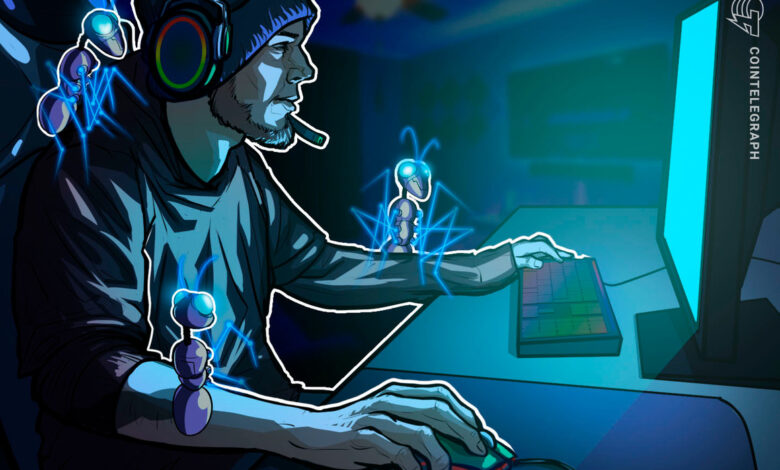Nftnews Today Gamers want fun, not a grind fest for tokens — Animoca subsidiary

Blockchain-based video games have to spend extra time truly being “enjoyable to play” reasonably than creating flashy tokenomics, an Animoca Model-owned blockchain sport developer instructed Cointelegraph.
Talking to Cointelegraph on the primary day of the 2022 Tokyo Video games Present, Luke Sillay, the lead neighborhood supervisor at Australia-based sport developer Blowfish Studios, mentioned that far too many blockchain video games have put the concentrate on in-game rewards and tokenomics reasonably than gameplay:
“You’ll be able to see from a whole lot of different blockchain video games that they’re not truly enjoyable to play. Like, sure, you could have potential to earn fairly a major quantity of token and also you get a very good return on funding more often than not. However typically talking, they’re not that enjoyable, proper?”
Sillay mentioned that typically, many of those video games have simplistic sport modes which are constructed round incomes, reasonably than pure enjoyment and have, subsequently, failed to understand the eye of conventional avid gamers to this point.
In keeping with knowledge from DappRadar, the preferred blockchain video games by way of energetic customers over the previous 30 days are Gameta, Alien Worlds and Solitaire Blitz with a million, 814,000 and 652,760 customers, respectively. The figures show vital curiosity within the video games however pale compared to widespread conventional video games.
Sillay mentioned video games ought to primarily be “enjoyable to play” and enticing to have a look at, stating:
“Our form of thought is that if it’s enjoyable to play and it’s enticing to have a look at, folks wish to play it.”
Blowfish Studios is an Australian online game developer that was acquired by Animoca Manufacturers for round $6.6 million in July 2021. As a part of the acquisition, Animoca has guided Blowfish from Web2 to Web3 gaming, with NFT sport Phantom Galaxies (at present in Beta) being the corporate’s major focus.

Questioned on the kind of video games that may work greatest with nonfungible tokens (NFTs) and play-to-earn (P2E) integration, Sillay highlighted free-to-play giants akin to Riot’s League of Legends and Epic Video games’ Fortnite which have already got inside markets constructed into them.
He famous that a majority of these video games typically appeal to die-hard followers as a result of they’re enjoyable to play, and frequently replace and enhance the expertise over time. This results in individuals who play for a number of years and fortunately spend cash to buy merchandise akin to new character skins.
“Say like League of Legends and Fortnite together with your skins and stuff like that […] Should you can play and luxuriate in one thing for a extremely very long time, you understand, and then you definitely drop it, in a yr or two in, you do not actually have a lot to indicate for it. However in case you try this with blockchain, you may probably promote all of the property you have earned,” he mentioned.
Sillay went on to notice that there are some boundaries to entry in blockchain video games which may be placing some folks off, and that if the onboarding course of could be ironed out this might appeal to new customers.
“It’s a really daunting factor making an attempt to study this entire new know-how, making a pockets and so on, and there are such a lot of phrases in blockchains that imply fully various things,” he mentioned.

Phantom Galaxies is an open-world mecha-robot shooter sport anticipated to have an official early entry launch in This autumn 2022. Its in-game NFTs have already seen a excessive stage of demand, with greater than 517,000 house owners of its Origin Assortment, in response to OpenSea. The undertaking additionally concluded a non-public NFT sale in Could that fetched an estimated $19.3 million.
Associated: Animoca confirms $110M spherical led by Temasek, plans new acquisitions
At this stage, Phantom Galaxies requires only one NFT to get began, making it a comparatively easy course of to get entangled.
“Then the remaining is definitely in the intervening time identical to a conventional sport mainly,” Sillay mentioned.
The journalist is a writer and digital nomad. Loves thinking, learning, and writing about all things Web3, particularly its impact on major creative industries.


